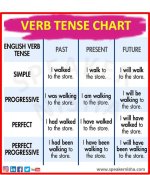joy_of_cooking
Literotica Guru
- Joined
- Aug 3, 2019
- Posts
- 1,167
I'm trying to write in present tense for the first time, and it turns out I don't know how the various verb tenses relate to each other.
Here's a probably correct paragraph in past tense:
And here's an attempt at translating it into present tense:
Anyone have a good resource for this? I've found stuff trying to teach me how to conjugate for a tense, but not anything so far showing me the transitions between different tenses, or even reliably examples of long narration in present tense.
Back in school, one of my teachers drew a fantastic diagram. It was a time line, with the present marked in the middle, and stacked above it were marks in different colors indicating when things happened for each tense. E.g., the preterite ("he walked") was a single mark in the past, indicating an event begun and completed in the past, whereas the pluperfect ("he had walked") was an arrow from a time in the past to an earlier time in the past, etc. Anyone know what I could google to find this diagram again?
Here's a probably correct paragraph in past tense:
She had never been pretty, of course. That would have been counter-productive for her work. Possibly even dangerous. But her features, however plain, had always had a certain uncanny perfection to them. Now her hair was a little limp, a little frizzy. Her skin was uneven, and there were slight bags under her eyes.
And here's an attempt at translating it into present tense:
She has never been pretty, of course. That would have been counter-productive for her work. Possibly even dangerous. But her features, however plain, have always had a certain uncanny perfection to them. Now her hair is a little limp, a little frizzy. Her skin is uneven, and there are slight bags under her eyes.
Anyone have a good resource for this? I've found stuff trying to teach me how to conjugate for a tense, but not anything so far showing me the transitions between different tenses, or even reliably examples of long narration in present tense.
Back in school, one of my teachers drew a fantastic diagram. It was a time line, with the present marked in the middle, and stacked above it were marks in different colors indicating when things happened for each tense. E.g., the preterite ("he walked") was a single mark in the past, indicating an event begun and completed in the past, whereas the pluperfect ("he had walked") was an arrow from a time in the past to an earlier time in the past, etc. Anyone know what I could google to find this diagram again?

